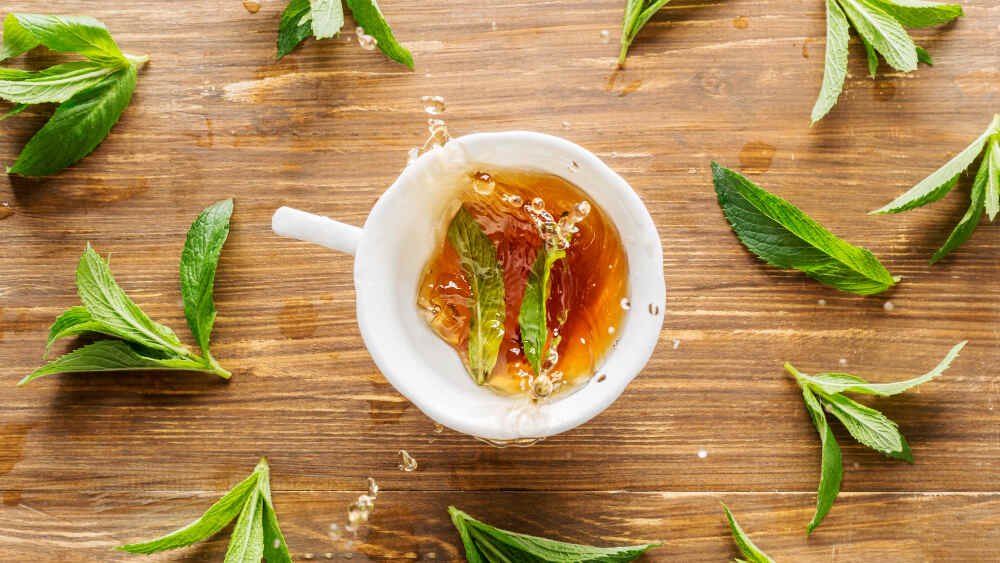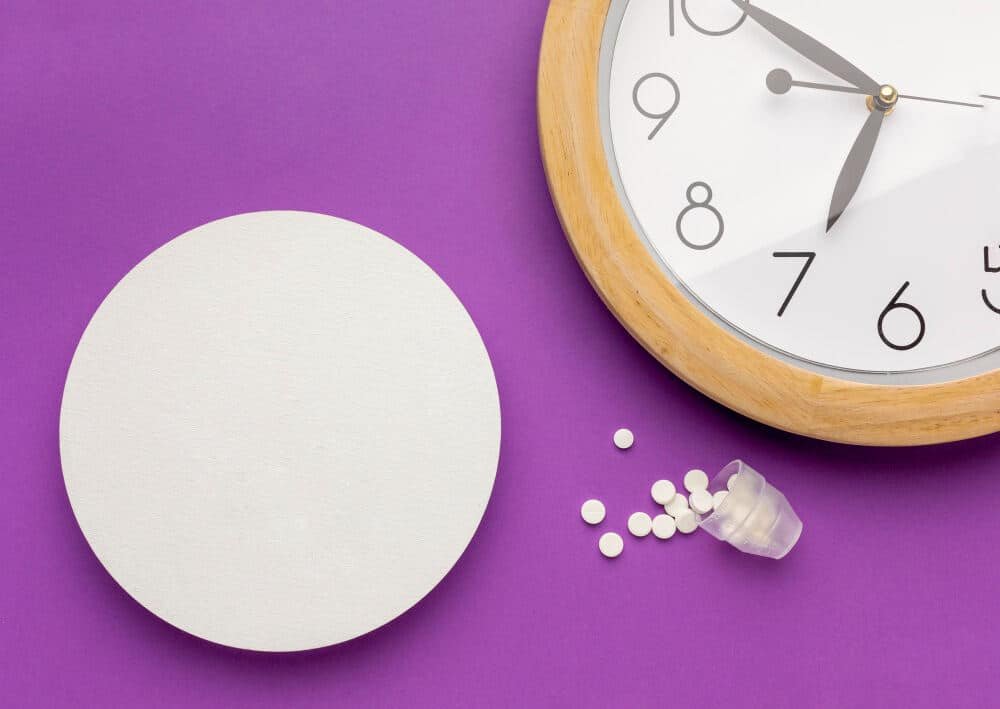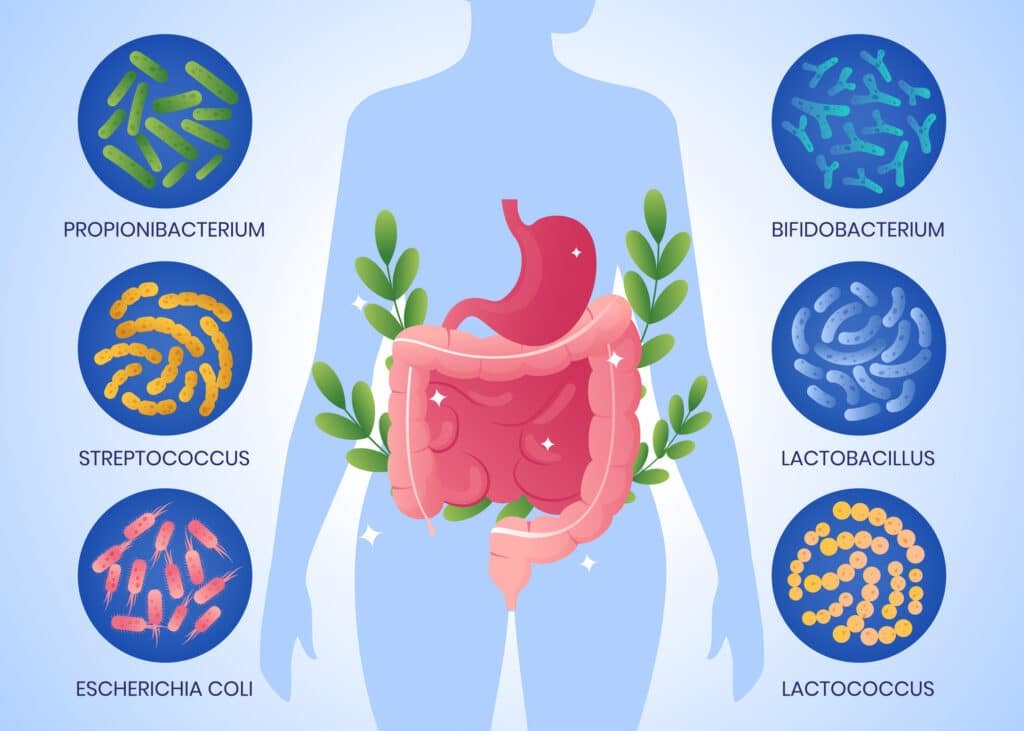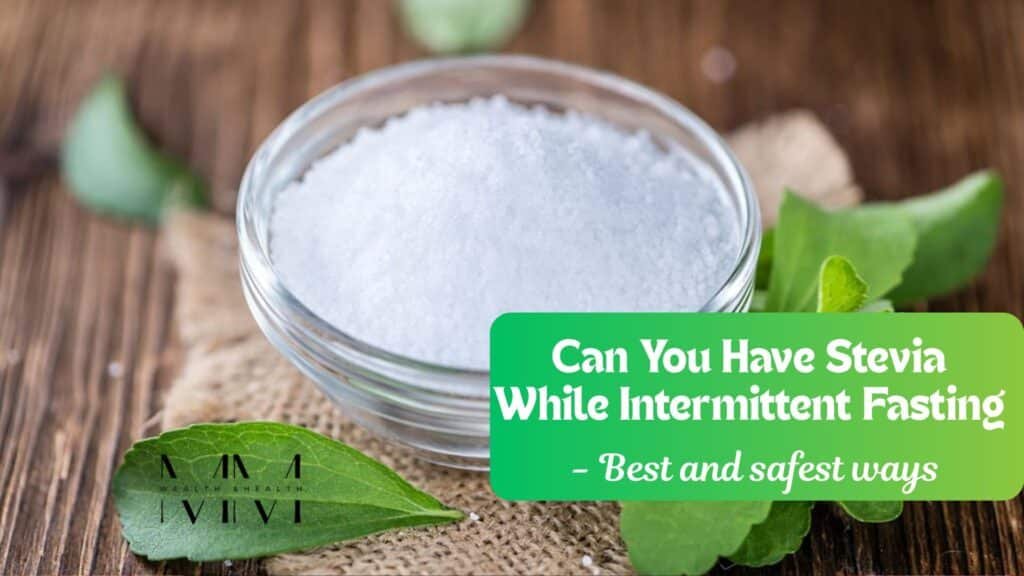Introduction
For those who have a sweet craving and ff you’re diving into intermittent fasting, there’s one question that pops up a lot: “Can I have stevia during my fasting window?” Whether you’re trying to lose weight, manage blood sugar, or simply improve metabolic health, this zero-calorie sweetener is tempting, especially if you have a sweet tooth.

But does it break your fast? To know the right answer, let’s get deeper into this topic and know more about stevia, its science, and its facts too.
Does Stevia Break a Fast?
Stevia has zero calories and minimal impact on insulin.
Might interfere with autophagy if that’s your primary fasting goal.Safe in black coffee or tea. Choose pure extract only.
What Is Stevia?
The stevia plant, native to South America, has quietly revolutionized how we manage sugar intake, especially for those navigating the fasting process. Extracted from the leaves of the stevia rebaudiana plant, natural stevia is a zero-calorie sweetener that tastes 200 to 300 times sweeter than regular sugar, without the baggage of extra calorie intake or the insulin spikes.
So, what gives stevia its punch? It’s all thanks to glycosides, powerful natural compounds that not only deliver intense sweetness but also offer beneficial effects. These include fighting free radicals, easing digestive issues, and helping the body cope with oxidative stress, making it more than just a sugar alternative.
Can you have stevia while intermittent fasting?
Stevia doesn’t contain any carbohydrates or proteins that stimulate insulin or raise blood sugar, and it doesn’t interrupt your fasted state. In simple terms, it won’t break your fast. That means you can stir a little into your morning green tea or black coffee without affecting your state of ketosis or slowing down the potential benefits of fasting.
Stevia doesn’t interfere with the state of ketosis or disrupt the fasting experience. This makes it a smart option for anyone practicing caloric restriction or aiming to lose weight without sacrificing taste.

Unlike regular sugar, stevia does not contribute to blood sugar fluctuations or insulin release, and the body doesn’t absorb it like other sweeteners. Instead, its glycosides are metabolized by gut bacteria and excreted, either through feces or urine, making its nutritional value uniquely favorable for those monitoring their overall health or managing medical conditions such as blood pressure or insulin sensitivity.
In fact, in the United States, stevia’s impact has grown increasingly popular among health-conscious consumers looking to reduce sugar cravings and support a cleaner, leaner lifestyle. For anyone aiming to replace plain water or enhance beverages with a hint of sweetness, stevia’s natural origins and lack of effect on the fasting process make it a top contender in the world of sugar alternatives.
And if you’re already including amino acids or other clean supplements during your fast, stevia fits right into your plan without disturbing your body’s rhythm.
Is Stevia Bad for You? What the Latest Research Says
Now that we’ve covered how stevia interacts with fasting and how different forms behave in the body, it’s time to address the common concern: Is stevia safe to consume?
Stevia has been the subject of scientific scrutiny for decades, and the results are largely in its favor. According to the U.S. FDA and the European Food Safety Authority (EFSA), purified steviol glycosides, the active compounds in high-quality stevia extracts, are classified as Generally Recognized As Safe (GRAS) when used within acceptable daily limits.

More than 200 peer-reviewed studies have confirmed the safety of stevia consumption in humans, particularly for metabolic and glucose-related health concerns. That’s why it’s a common choice among those managing type 2 diabetes, insulin resistance, or obesity, and why it’s become a staple for people embracing intermittent fasting or keto lifestyles.
The World Health Organization (WHO) recommends a maximum daily intake of 4 mg per kilogram of body weight. For a 68 kg (150 lb) individual, that’s around 272 mg per day, well above what’s typically consumed in a few drops of liquid stevia.
But Does Stevia Break a Fast?
Not always, but it depends on your exact fasting goals.
If you’re fasting for autophagy, your body’s way of cleaning out damaged cells and regenerating new ones, even small insulin responses might interfere. According to a 2019 study in Cell Metabolism, nutrient-sensing pathways can be triggered by sweet tastes, even those with zero calories, such as stevia.
So if your goal is gut rest, cellular cleanup, and cell repair, even zero-calorie drinks flavored with stevia may interrupt that process, depending on how sensitive your body is to sweet stimuli.
If your fasting focus is more metabolic, like blood sugar control, weight loss, or weight management, then things look different. Most research agrees that pure stevia extract has a minimal impact on glucose metabolism. It doesn’t significantly raise blood sugar levels or cause major insulin spikes, especially when consumed in small amounts.

That means if you’re using intermittent fasting for metabolic flexibility, improving insulin sensitivity, or simply to lose weight, adding a dash of stevia to your cup of coffee is unlikely to derail your fast or affect your results.
For fat burning, blood sugar control, and weight management, stevia is generally safe in moderation during a fast. But if your goal is deep cellular repair or autophagy, even the slightest insulin response from sweeteners might interfere, so tread mindfully.
When Stevia Could Be a Concern
Despite its excellent safety profile, there are caveats. Not all stevia products are created equal, and overuse, especially of blended or highly processed stevia forms, may introduce unwanted effects.
1. Gut Health Sensitivity
Emerging studies suggest that excessive intake of non-nutritive sweeteners, including stevia, might disrupt gut microbiota. A 2020 review in Nutrients noted that when consumed in large amounts, some individuals experienced bloating or mild digestive changes, likely due to microbial shifts.
That said, these effects were mostly associated with stevia blends (containing erythritol, maltodextrin, or inulin), not pure stevia extract.
2. Taste and Cravings
While stevia helps curb cravings, habitual overuse might prolong the brain’s dependency on sweetness, making it harder to transition away from sweet flavors altogether. For those aiming to reset taste preferences during fasting, even calorie-free sweetness can be a slippery slope.

“Stevia supports your fast, not breaks it. Zero calories, zero compromise, and 100% natural.”
Choosing the Right Stevia Product
If you’re committed to intermittent fasting or metabolic health, your focus should be on pure stevia, free from additives or bulking agents. Here’s what to avoid:
- Maltodextrin: High on the glycemic index, can spike blood sugar
- Dextrose or glucose: Adds calories and disrupts fasting.
- Blended powders: Often diluted and not well-regulated
- Artificial sweeteners: May interfere with insulin and gut health
Look for stevia labeled as “organic pure stevia extract” or “100% rebaudioside A (Reb A)” with no fillers. These versions are the most bioavailable and fasting-safe.
Types of Stevia Products:
| Type | Description | Calorie Content | Sweetness |
|---|---|---|---|
| Pure Stevia Extract | Contains mostly steviol glycosides, often up to 300x sweeter than sugar | Zero | Very high (tiny amounts) |
| Blended Stevia Products | Mixed with sugar alcohols or other non-caloric sweeteners | Minimal to low | High |
| Stevia Leaf Powder | Crushed leaves, less refined, may include other plant matter | Small amounts | Mild |

Why People Use Stevia While Fasting
For many, stevia is more than just a sweetener; it’s a tool to make fasting more sustainable. As a zero-calorie sweetener, it allows you to enjoy sweetness during your fasting period without breaking your fast or impacting your goals.
1. A Zero-Calorie Sugar Alternative
Stevia is a popular sugar alternative because it provides sweetness without adding calories or affecting blood glucose levels. Unlike table sugar, which can cause insulin spikes and hunger crashes, stevia helps you stay in a fasted state while satisfying your desire for flavor.
2. Keeps Sweet Cravings Under Control
When you’re deep into a fast, sweet cravings can be your biggest hurdle. A small amount of stevia in black coffee or herbal tea can help take the edge off, allowing you to stay focused and committed to your eating window. Whether you’re following a keto diet, a low-carb lifestyle, or practicing intermittent fasting purely for longevity, stevia fits the bill. It’s naturally derived, non-GMO, and safe for most individuals, even those managing conditions like Type 2 diabetes or PCOS. Plus, it doesn’t interfere with autophagy, the cellular cleanup process that fasting promotes.
3. Doesn’t Interrupt the Fasting Process
Fasting can feel restrictive, especially for beginners. Having a sweet option like stevia that doesn’t derail your goals can make it easier to stick to your routine. When you allow yourself that slight indulgence in taste, without guilt, you’re more likely to stay consistent. And in the world of intermittent fasting, consistency is what leads to long-term fat loss and health improvements. Unlike natural sugars like maple syrup or honey, stevia doesn’t stimulate insulin in a way that would break your fast. This makes it ideal during your fasting period, especially for those following the 16:8, OMAD, or time-restricted eating approach.

6. Convenient and Accessible
Another big reason people choose stevia is accessibility. It’s available in most grocery stores, comes in liquid drops, packets, or powder form, and mixes easily with beverages. For those who want to enhance their black coffee, iced green tea, or sparkling water, a few drops go a long way, without breaking the fast.
Best Time to Use Stevia During a Fast
Stevia is safe to use at any point during your fasting window, but timing it right can make a difference, especially if you’re fasting for different goals.
- Morning or Mid-Fast:
Adding stevia to your morning coffee or tea is perfectly fine. It won’t spike your blood sugar or insulin, making it a good choice for those focusing on fat loss or metabolic health. - Right Before Breaking Your Fast: Want a sweet taste right before your eating window? Go ahead, stevia doesn’t break your fast, so it won’t interfere with your results. It can also help curb cravings before your first meal.
- During Extended Fasts (24+ hours):
If your goal is deep autophagy, some experts recommend avoiding even non-nutritive sweeteners late into your fast. While stevia is unlikely to stop autophagy, keeping your fast as “clean” as possible may be ideal.
Stick to pure stevia without fillers like dextrose or maltodextrin, especially during longer fasts.
How Stevia Affects the Body During a Fast
1. Insulin Levels and Response
While stevia is a non-nutritive sweetener, some animal studies suggest it may cause a cephalic phase insulin response, basically, your body anticipates calories from the sweet taste and releases a bit of insulin.
However, the effects of stevia on insulin secretion in humans are minimal, and significantly less than nutritive sweeteners or artificial sweeteners.
2. Gut Health & Microbiota
The digestive tract isn’t entirely off-limits when you consume stevia. Some concerns exist about how non-caloric sweeteners may alter your gut microbiota or lead to small intestine bacterial overgrowth (SIBO).

The Acceptable Daily Intake & What It Means
Using natural stevia in moderation is perfectly fine during intermittent fasting; it won’t break your fast or cancel out the potential benefits like fat burning, improved insulin sensitivity, or entering a fasted state.
According to the World Health Organization (WHO) and U.S. Food and Drug Administration (FDA), the acceptable daily intake (ADI) for steviol glycosides is 4 mg per kg of body weight.
So, for a 70 kg person (~154 lbs), the safe daily limit is 280 mg, which is way more than most people use in a day.
That means, if you weigh 150 pounds (68 kg), your max is around 272 mg of stevia extract per day.
Now, how much is that in drops?
A typical serving of pure liquid stevia extract (like 5–7 drops) contains 20–50 mg, depending on the brand.
So, to stay within the safe limit:
- You should stick to no more than five 50-mg servings a day (roughly 25–60 drops total).
- Always check the label, because stevia strength varies a lot between brands.
If you’re unsure, it’s worth contacting the manufacturer for exact details, especially if you’re using it daily in green tea, coffee, or plain water to manage sugar cravings during your eating window.

Best Practices for Using Stevia During Intermittent Fasting
- Stick to Pure Stevia Extract – Avoid blends that include maltodextrin, dextrose, or sugar alcohols like erythritol, which may impact your fast.
- Use in Moderation – A little bit goes a long way. Overuse may trigger unwanted sweet cravings.
- Avoid in Extended Fasts – If you’re doing alternate-day fasting, you may want to skip all sugar substitutes to maintain the maximum benefits of fasting.
- Track Your Response – Everyone’s metabolism and insulin sensitivity differ. If you’re not seeing results, eliminate stevia for a week and see what changes.
Discover This Must-Read on Amazon
Intermittent fasting is more than a health trend; it’s a powerful tool for women seeking balance, energy, and vitality. By aligning your eating windows with your natural rhythms, you can unlock fat-burning, improve mental clarity, and feel more in control of your health. Imagine saying goodbye to constant cravings and hello to a lifestyle that empowers your body to heal and thrive. Check out this amazing book from Amazon Kindle that can enhance your transformation from the inside out!
Will stevia spike insulin?
When consumed in small amounts, pure stevia extract typically causes minimal to no insulin response in most people, making it compatible with intermittent fasting goals.
Is stevia better than artificial sweeteners like sucralose or aspartame?
Yes. Stevia is a natural sweetener and doesn’t carry the same side effects or negative impact on gut health that many artificial sweeteners do. This makes it a gentler and more fast‑friendly choice.
Can stevia ruin the benefits of fasting?
It depends on your specific goal. For autophagy or gut rest, even a small sweet taste may interrupt the process. But for weight loss or blood sugar control, it’s unlikely in small amounts of pure extract.
Can I use stevia in my black coffee during the fasting window?
Absolutely. A few drops won’t add calories or break your fast, especially during your fasting window, so long as you stick with pure stevia extract.
Are there better alternatives to stevia?
Monk fruit is another popular choice, particularly if you’re sensitive to stevia’s aftertaste. It’s also zero-calorie and provides similar health benefits without impacting blood sugar or insulin.
Conclusion
For most people, stevia is safe and effective during intermittent fasting, especially if your goal is weight loss, glucose control, or curbing cravings.
Just be mindful of the type of stevia products you use and how much. Stick to pure stevia extract and stay under the acceptable daily intake. Avoid blends with nutritive sweeteners and monitor how your body responds.



